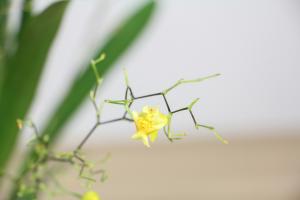The Rough ER in Plant and Animal Cells
Introduction
The rough endoplasmic reticulum (ER) is an organelle found in both plant and animal cells. It plays a crucial role in protein synthesis, which is the process by which cells produce the proteins necessary for various cellular functions. Despite its importance, many people are unfamiliar with the rough ER and its functions. This article will explore what the rough ER is, what it does in plant and animal cells, and why it is necessary for cellular function.
What is the Rough Endoplasmic Reticulum?
The rough ER is a network of flattened sacs, known as cisternae, that are studded with ribosomes. These ribosomes are responsible for synthesizing proteins, which are then transported through the cisternae to other organelles or secreted out of the cell. The rough ER is called "rough" because of its appearance under an electron microscope - the ribosomes give it a textured, "bumpy" appearance.
What Does the Rough ER Do in Plant Cells?
In plant cells, the rough ER is responsible for synthesizing proteins that are secreted out of the cell, such as enzymes or structural components of the cell wall. It also plays a role in lipid synthesis, which is the process by which cells produce fats and oils. The rough ER is also involved in the detoxification of harmful substances, such as herbicides or pesticides.
What Does the Rough ER Do in Animal Cells?
In animal cells, the rough ER is also involved in protein synthesis and lipid synthesis, but it has additional functions as well. For example, the rough ER is responsible for synthesizing membrane proteins, which are proteins that are embedded in the cell membrane and are responsible for various cellular functions such as cell signaling and transport. The rough ER is also involved in the folding and modification of proteins, which is necessary for their proper function.
Why is the Rough ER Important?
The rough ER is a vital organelle in both plant and animal cells, as it plays a crucial role in protein synthesis and lipid synthesis. Without the rough ER, cells would be unable to produce the proteins and lipids necessary for their proper function. In addition, the rough ER is involved in the detoxification of harmful substances and the synthesis of membrane proteins, which are essential for various cellular functions. Overall, the rough ER is essential for the survival and proper function of cells.
Conclusion
In conclusion, the rough ER is a crucial organelle found in both plant and animal cells. It plays a vital role in protein synthesis, lipid synthesis, detoxification, and the production of membrane proteins. Although it is often overlooked, the rough ER is essential for the survival and proper function of cells.

 how many times do yo...
how many times do yo... how many planted tre...
how many planted tre... how many pine trees ...
how many pine trees ... how many pecan trees...
how many pecan trees... how many plants comp...
how many plants comp... how many plants can ...
how many plants can ... how many plants and ...
how many plants and ... how many pepper plan...
how many pepper plan...






























